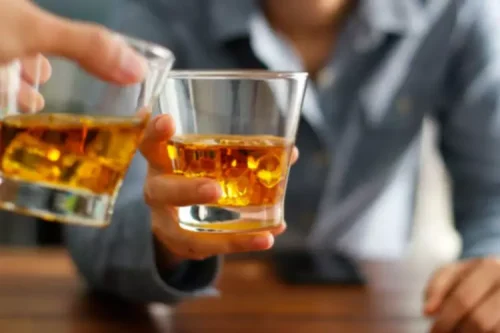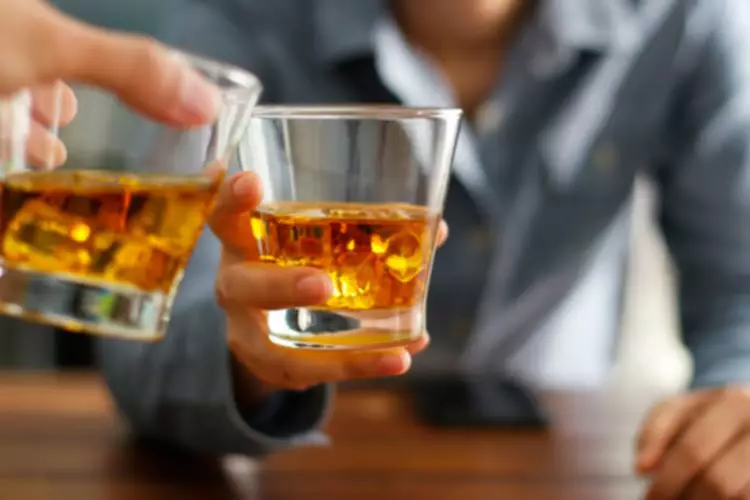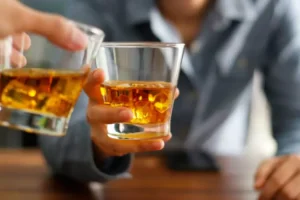Alcohol and Sleep

Department of Veterans Affairs estimates that between 36% and 91% of people with alcohol dependence experience insomnia. The research also showed that sleep problems often occur before a person develops issues with alcohol, but alcohol dependence may also lead to insomnia, creating a complicated cycle. From that poor sleep, an individual can wake up groggy and dysregulate their normal circadian cycle.
Short-Term vs. Long-Term Effects on Sleep
Having alcohol before bed can also increase your risk of falls if you get up during the night, due to instability and unsteadiness, notes Avidan. Here’s what to know about how a nightcap can affect your sleep and why doctors say it’s not a good idea to rely on alcohol as a sleep aid. Having a drink before bed to help you relax and nod off may indeed make you sleepy, but there are many reasons why alcohol is not a good sleep aid. Lindsay Modglin is a nurse and professional writer who regularly writes about complex medical topics, as well as travel and the great outdoors.
- Moreover, alcohol can reduce the time spent in one sleep cycle while increasing the time spent in another.
- Research shows that regular alcohol intake can reduce sleep quality over time, potentially causing issues such as insomnia.
- The combination can lead to unhealthy habits, exacerbating the problem.
- For personalised advice, consult with a healthcare professional.
Lifestyle

These ingredients often include underlying risk factors for insomnia combined with stressful or disruptive life circumstances or events. The result is a change in sleep, along with worries about being able to sleep. The combination can lead to unhealthy habits, exacerbating the problem. National Library of Medicine researchers found that even moderate alcohol consumption can significantly disrupt your sleep.

Alcohol and Insomnia’s Relationship with Co-occurring Disorders

More than 70% of those with alcohol use disorder (AUD) also experience alcohol-induced sleep disorders, such as insomnia, according to scientists in a 2020 review. Regular drinking has also been linked to shorter periods of rapid eye movement (REM) sleep, a disrupted circadian rhythm, and snoring. At first, it acts as a sedative, making you feel relaxed and potentially helping you fall asleep faster. It’s likely that most people reach for the hard stuff to help them sleep because alcohol, for all intents and purposes, is a sedative. And no one will argue that it can shorten sleep latency (the time it takes you to fall asleep).
- If you tend to have trouble sleeping, the story about a princess who couldn’t sleep because of a tiny pea beneath her mattresses might not sound like a fairy tale at all.
- The disturbance brought about by Alcohol can wait, leaving you feeling exhausted, crabby, and not even close to all-around rested.
- Remember the tale of the worst alcohol choices for sleep before you raise that glass.
- You may wake feeling tired, groggy and not well rested—even if you seemingly slept the entire night.
- This means people with insomnia have an increased risk of alcohol and substance use disorders.
About Medical News Today

The more they take, the more they feel they need, and soon, they’ve built a dependency on alcohol in order to feel relaxed. Addiction to alcohol and insomnia commonly co-exist, as many who have trouble falling asleep mistakenly turn to alcohol in order to help them get rest. The good news is that these sleep disruptions are temporary, and any insomnia you experience will likely resolve as you persevere through recovery. You may experience your most severe sleep disturbances in the first week, but https://ecosoberhouse.com/ most people find that it eases up with time. Sleep deprivation due to alcohol consumption can exacerbate performance impairment and daytime sleepiness.
At any rate, a regular nighttime drinking habit will increase your odds of poor-quality sleep over time. Having a nightcap to top off your day can seem helpful—at least at first—because alcohol has a way of making you feel calm, drowsy, and at ease. But its effects can backfire as your body moves through its later Alcohol Use Disorder sleep stages, making you feel tired and sleep-deprived in the long run. Being a sedative and depressant of the central nervous system, alcohol can increase feelings of tiredness and sluggishness.
Make Your Space Sleep-Friendly
“It is best to drink early enough in the evening so that does alcohol cause insomnia the alcohol is metabolized before going to sleep,” adds Benjamin. “Typically, it’s advised to stop drinking alcohol around three to four hours before bed. This should give the body enough time to metabolize the alcohol and get it out of one’s system, allowing them to enjoy unaffected sleep,” explains Dr. Hsu. Over time, poor quality sleep can have a negative influence on many different aspects of your life, including your long-term health.
The Science of Alcohol and Sleep
- Instead of deep, restful sleep, you’re more likely to find nighttime awakenings, lower sleep quality, and reduced sleep efficiency at the bottom of your glass.
- Individuals with mental health conditions are also more likely to develop insomnia.
- Because alcohol is a sedative it may make it easier to fall asleep.
- They experience limited REM sleep, which can affect their health.
The typical sleep cycle begins with three non-rapid eye movement (NREM) stages of sleep and ends with rapid eye movement (REM). During sleep, the body cycles through all of these stages every 90 to 120 minutes, with NREM sleep dominating the first part of the night and REM increasing during the second part of the night. Each stage is necessary for sleep to feel refreshing and for vital processes like learning and memory consolidation to occur.
Read on to find out how alcohol can affect your sleep, and why—as well as insight into the health benefits of getting enough shut-eye. As we navigate the complexities of alcohol and sleep, let this guide be a stepping stone towards better sleep hygiene and overall well-being. If you or someone you know is struggling with alcohol-related issues, don’t hesitate to get in contact with our professional team at Rehabs UK.
She is active within AASM and has served on numerous AASM committees, including the original Telemedicine Task Force. She also served as the inaugural chair of the Clinical and Consumer Sleep Technology Committee and is the current chair of the AASM Public Awareness Advisory Committee. Sunnyside uses a psychology-based approach to help you drink more mindfully, no matter what your goal is. You’ll get a 100% custom plan, then use daily texts to track your progress and help you stay on target. It’s usually six to 10 sessions, and no medications are required.

